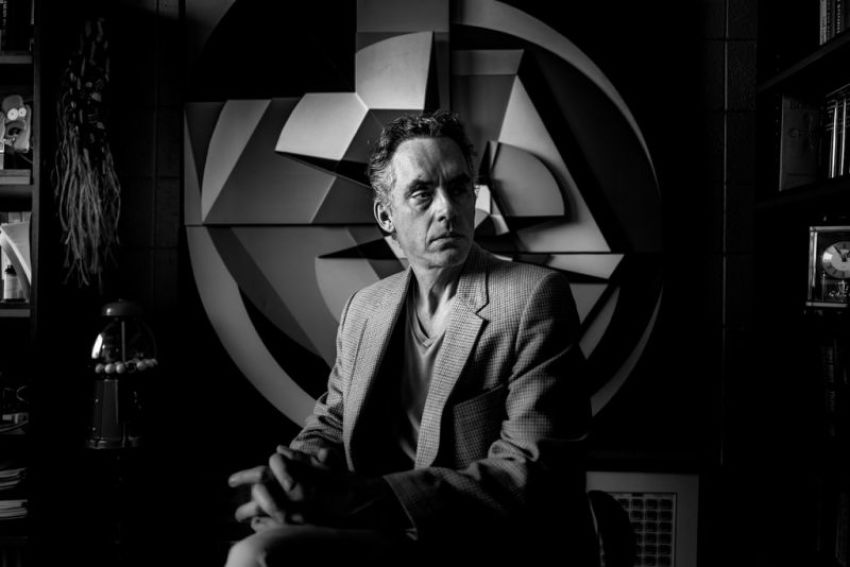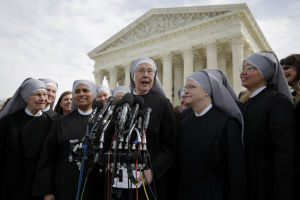What Can Christians Learn From Jordan Peterson and His Wide Influence?

Theologians and other Christian writers are weighing in on the phenomenon of Canadian psychologist and professor Jordan Peterson, whose influence among young men continues to grow.
And even though Peterson is not a Christian, "his understanding of Scripture is something that we can learn from," said British theologian Alastair Roberts in a Desiring God interview Monday.
"We see that there are structures of meaning and archetypes and these sorts of things. These are represented in Scripture," he said of Peterson's views about the Bible.
"But at the same time, it's not inspired, infallible, or inerrant [for Peterson]," he continued. "It's not the sorts of things that we as Christians would hold as absolutely essential to an orthodox doctrine of Scripture."
Many first heard about the University of Toronto professor as a result of his advocacy in 2016 against bill C-16, which added "gender identity or expression" as a prohibited ground of discrimination under the Canadian Human Rights Act, something which Peterson objected to because in practice it requires belief in gender ideology and compels speech, as people would be forced to use the preferred gender pronouns for individuals who identify as transgender.
Largely since then, he has become an internet and speaking tour sensation, has amassed a huge following online, and his YouTube videos — where he has often given advice to troubled young men — receive millions of views.
Peterson, 56, who was raised Protestant and is unapologetically a "Jungian"— named after Swiss psychiatrist and psychoanalyst Carl Jung — told Roman Catholic author and podcaster Patrick Coffin in a Feb. 5 interview that he needed "three more years" before he could say whether or not he believed Jesus rose from the dead. Yet his best-selling book, 12 Rules for Life: An Antidote to Chaos, is saturated with scriptures and recognizes the Bible's foundational role in Western civilization. Taken together with his fierce insistence on always telling the truth, he has won fans and admirers from within churches.
Roberts also observed that a significant part of the fascination surrounding Peterson is how he has connected with so many young men. While he has the professional credentials, he speaks to them not as an academic, but as a firm, kind-hearted dad.
"People recognize in him a father figure, and they respond to him as a father figure — someone who represents a man who cares about them, who's concerned for their well-being, and who speaks with authority into their situation," Roberts explained.
"He speaks as one who cares about them and as one who gives them direction. He speaks as an older man to younger men. Now I think that's powerful, and yet many pastors fail to speak in such a manner. They fail to represent that sort of figure."
Christians can learn from his example that people are not resistant to authority, he continued, but that when they see good authority, they will respond to it.
"I believe as pastors face the crisis of trust within the church today, where people feel this deep distrust arising from a history of abuse, of spiritual mistreatment, of all these other sorts of problems, and there are so many competing voices of authority, I think there's a lot to learn from this," Roberts said.
Writing in Mere Orthodoxy in April, Manhattan Institute Senior Fellow Aaron M. Renn noted that the Canadian psychologist is not merly speaking in academic terms about masculinity or how men ought to live; "he's personally demonstrating manly courage in the public arena," as he is unafraid to speak unpopular things.
"That's the difference between the church and Jordan Peterson," Renn offered.
"While the elite Evangelical cultural engagement crowd is busy suing for peace with the world, he's laying it on the line. You might protest that he's a tenured professor and that he's banked his book advance and his Patreon money. Well, a lot of those Christian pastors have sold a lot of books too. Where are they?"
The Federalist's executive editor, Joy Pullman, believes Peterson represents an existential threat to the Left's grip on so much of culture, noting in an editorial Tuesday that whatever one thinks of his views, he is undoubtely competent. And at a time when Western societies are festering in identity politics, cultural rot, and incompentence at the highest levels, more reform is needed than what one man speaking effectively on social media platforms and elsewhere can provide, she argued.
"The phenomenon he's sparked cannot live upon YouTube videos alone, but requires those ideas incarnating into thousands, even millions of people consciously choosing a lifetime challenging themselves with the rigors of true service to and friendship with wives, husbands, children, neighbors, and God himself," Pullman asserted.
"This is what it means to be human, to be fully alive."



























